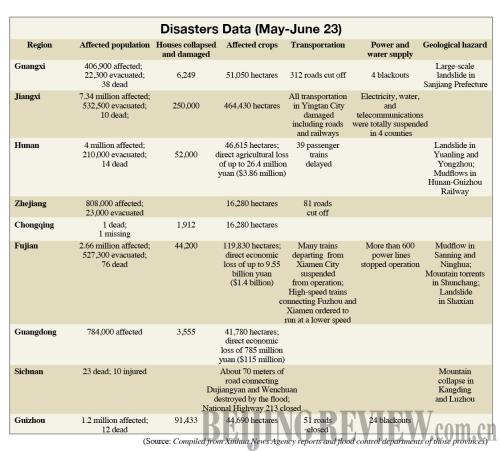|
The recent floods in cities in the south have also threatened the aging drainage system.
"It seems to me that our country has been coping with floods every year, but why are we having the same problems year after year?" said Xu Qing, a Guangzhou resident, adding "you cannot blame global warming all the time."
"When it comes to floods, people will immediately think of rural and mountainous areas while ignoring the potential damages it might cause to cities," said Shan Chunchang, head of the State Council emergency management expert group at a recent forum on the future of the city.
Guangzhou City, capital of Guangdong, the economic powerhouse of south China, was flooded twice in May. More than 13,000 cars were submerged resulting in more than 100 million yuan ($14.6 million) in insurance claims, Nanfang Daily reported. Underground garages were the hardest hit. In other cities cars, homes and shops were also consumed by floodwaters.
Shan questioned the drainage systems in cities and said they have invested too much aboveground and too little underground.
"All architecture must have emergency entrances and exits for when floods occur," said Ni Yang, Deputy Dean of the Architectural Design Research Institute of the South China University of Technology.
Ni said many domestic architects lack the experience in designing structures that can cope with natural disasters. Unlike foreign parking lots, many Guangzhou garages do not have drainpipes or water pumps installed.
Zhou Yuwen, professor at the Beijing University of Technology and a drainage system expert, said the urban areas are getting larger and gradually taking up rivers and wetlands, which can absorb more water. "The permeable soil has been replaced by concrete," said Zhou.
According to experts, the more prosperous the city becomes, the more it must invest in underground infrastructure like its drainage system. Economic achievements must go side by side with advances in infrastructure.
| 